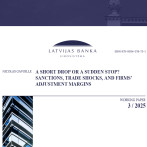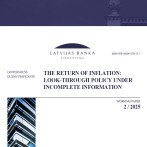Who will pay for price hikes?

"Hello, could I have this bun, please?" a student only half awake addresses the saleswoman, handing her a euro for his daily breakfast.
"1.20, please," the saleswoman responds warmly.
"It was one euro just yesterday!" the student tries to make sure whether lack of sleep is not clouding his judgement.
"Yes, but it is 1.20 today," his last illusions are shattered.
(A conversation heard at a cafe)
It is currently becoming increasingly obvious how the prices of our favourite products or services have picked up the pace. Inflation was on the rise in June (+19.3% year-on-year), with prices growing by 2.4% month-on-month. Moreover, June could still be seen as the "silent period" that followed the surge in prices reflected in May's electricity bills and that preceded the entry into force of the new gas tariffs in July. Heating tariffs in various populated areas have been raised at different times: some of them also saw an increase in June, while for other areas the growth is yet to come.
Alongside these price jumps, a rise is recorded in the prices for various everyday goods and services. What happens if traders take the climbing costs into account when setting the prices for the goods and services they sell? Inflation keeps growing. What happens if they do not? A company's profit drops, and a cost surge may result in losses and a possible suspension of its operation.
There are grounds for wondering whether prices are raised in line with the cost increase or simply by taking advantage of the situation and referring to the inflation raging nearby as the reason. In the first quarter, corporate profitability was, on average, close to the long-term average. Of course, the situation varied quite considerably across sectors and across companies within the same sector. However, it appears businesses have currently managed to transfer the cost increase to the prices and make consumers pay for it. Still, as the savings built up during the pandemic are dwindling and the average wage is rising slower than inflation, this is not a long-term solution, since a weaker purchasing power will cause a decline in demand. Inflation is still driven by the global price rise; nevertheless, various mechanisms are put to use in both fiscal and monetary policies and they could slow the price surge down, albeit it is not a matter of days or even a month.
Textual error
«… …»






